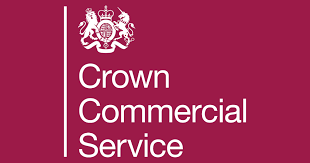The Crown Commercial Service (CCS) plays a vital role in UK public sector procurement, helping government departments, local authorities, and other public bodies acquire goods and services efficiently. By leveraging economies of scale, CCS ensures value for money while maintaining compliance with procurement regulations. For businesses, understanding the role of CCS is essential for securing government contracts and navigating the UK procurement landscape.

What is the Crown Commercial Service (CCS)?
The CCS is an executive agency of the UK government, operating under the Cabinet Office. Its primary function is to support public sector organizations in procuring goods and services in a cost-effective, transparent, and compliant manner. CCS manages commercial agreements and frameworks that help streamline procurement across the public sector.
Key Objectives of CCS
Cost Efficiency: Helps public sector buyers save money by negotiating better deals.
Simplified Procurement: Reduces complexity in procurement processes.
Compliance: Ensures adherence to procurement regulations.
Sustainability: Promotes environmentally and socially responsible purchasing.
Supporting SMEs: Encourages small and medium-sized enterprises (SMEs) to access government contracts.
How CCS Supports Public Sector Procurement
CCS provides a range of services to make procurement easier and more effective for government organizations. These include:
1. Managing Framework Agreements
Framework agreements are pre-approved procurement solutions that allow public sector bodies to purchase from suppliers without conducting full tendering processes. CCS frameworks cover various categories such as IT, facilities management, professional services, and transport.
2. Centralized Procurement
By consolidating public sector demand, CCS negotiates better pricing and terms with suppliers. This approach reduces costs and administrative burdens for both buyers and suppliers.
3. Digital Marketplaces
CCS operates digital procurement platforms, such as:
G-Cloud: For cloud computing services.
Digital Outcomes and Specialists (DOS): For IT and digital projects.
eMarketplace: A digital catalog for low-value goods and services.
These platforms provide an easy way for suppliers to engage with the public sector and offer their services.
4. Compliance and Best Practices
CCS ensures that public sector procurement adheres to legal and regulatory requirements, such as the Procurement Act 2023 and environmental policies. It also provides guidance on ethical sourcing and fair competition.
5. Supporting SME Participation
To make public contracts more accessible to SMEs, CCS:
Encourages breaking down large contracts into smaller lots.
Reduces barriers to entry by simplifying procurement processes.
Provides guidance and training to help SMEs compete effectively.
How Businesses Can Work with CCS
For suppliers looking to win government contracts, understanding how to engage with CCS is crucial.
1. Register on CCS Frameworks
Businesses can apply to become part of CCS framework agreements, which increases their chances of securing contracts without going through lengthy tender processes.
2. Use Digital Procurement Platforms
Suppliers should register on CCS digital marketplaces, such as G-Cloud and DOS, to showcase their offerings to public sector buyers.
3. Stay Compliant with CCS Requirements
Ensure your business meets CCS procurement criteria, including compliance with sustainability, security, and ethical standards.
4. Monitor CCS Contract Opportunities
Regularly check CCS frameworks and procurement portals for new opportunities to supply goods and services.



